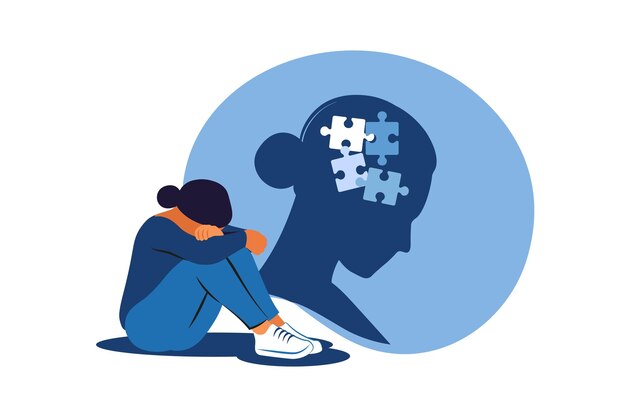Adversity is an inevitable part of the human experience, making resilience a must for leading a full and joyful life. Whether you experience personal challenges, professional setbacks, or relationship difficulties, maintaining your mental well-being is a skill worth cultivating. Just as physical exercise strengthens the body, techniques for emotional endurance give you the power to handle whatever life throws at you. Here are four essential strategies for building mental resilience.
1. Seek Professional Help When Necessary
Professional help, including therapy and medication, can be pivotal in cultivating emotional resilience. Professionals like therapists and psychiatrists are trained to understand the complexities of mental health. In addition to understanding and diagnosing issues, they can help you develop coping strategies and increase stamina for everyday life.
In addition, therapy helps you identify and address the underlying causes that could hinder growth. These issues could be unresolved trauma, persistent negative thought patterns, unpredictable mood swings, and untreated mental health conditions. A professional can tailor their approach to your specific needs, whether it be medication, therapy, or a combination.
Taking medications for conditions like anxiety, depression, or bipolar disorder can be a life-changing treatment. Properly prescribed drugs aim to stabilize mood and reduce the negative symptoms of mental health disorders. Fortunately, these treatments are more accessible than ever, thanks to the conveniences of mental health medication online and an expanded number of prescription options.
It is best not to wait until you’re in a crisis to seek professional help. Early interventions can prevent issues from worsening and make it easier to build resilience. Finding the right therapist or medication plan may take time, so be patient with the process. Be open to sharing your true thoughts, feelings, and experiences to receive the most effective support.
2. Stay Connected
Mental resilience can’t always be done on your own and requires staying connected with your community. For example, human connection provides a vital source of emotional support that makes it easier to get through life’s hard times. You can find a healthy outlet for emotional expression and stress by engaging in conversation or activities with others.
Connection also allows you to gain different viewpoints and pick up pieces of wisdom from your interactions. Learning more about the experiences of others could provide you with valuable insight into navigating challenging circumstances. Connecting with people also instills a sense of belonging, which is essential to a joyous and fulfilled human experience.
To stay connected, you can start by nurturing your existing relationships. This maintenance could look like regular check-ins through a quick text, a FaceTime call, or catching up over coffee. If you want to branch out, joining social groups is a terrific way to grow your network and find people aligned with your values and interests. Volunteering, taking a class, or playing a sport can also be enjoyable ways to stay connected.

3. Embrace Self-Compassion and Self-Awareness
The path to mental resilience is much easier to navigate with self-compassion and self-awareness. A strong sense of self-compassion lets you treat yourself with the same kindness and understanding you would give a friend. When you’re less self-critical, you’re more equipped and have the energy to bounce back from failure or setbacks.
Self-awareness pushes you to recognize your emotional and stress triggers. This understanding allows you to see your patterns and recognize where you have room to improve. You can then use this knowledge to develop healthier coping strategies and work toward the life you want to lead. Identifying your strengths and weaknesses lets you embrace your imperfections and setbacks as opportunities for growth rather than failure.
Self-compassion and self-awareness also help you navigate your emotions more effectively. For example, acknowledging your feelings without judgment and knowing how to respond to them strengthens your emotional endurance. You can build up your compassion and awareness toward yourself by setting realistic expectations, challenging negative self-talk, seeking professional guidance, and taking time for self-reflection.
4. Practice Mindfulness
Mindfulness is a powerful tool for building mental resilience while supporting your overall mental and physical health. These practices help you develop improved emotional regulation, greater awareness, and the ability to respond to challenges with composure. Mindfulness encourages a non-judgmental awareness of your thoughts and feelings, which allows you to acknowledge emotions without becoming overwhelmed. This skill leads to better mood stabilization and adaptability when facing adversity.
Practicing mindfulness also supports clearer thoughts and a calmer mind. This serenity can improve problem-solving abilities since you can approach challenges with a level head and greater resourcefulness. In addition, mindfulness exercises can enhance concentration and attention, which allows you to stay focused on the present moment, no matter how stressful.
Start small and be gentle with yourself if you’re new to practicing mindfulness. You can begin with short meditation sessions for a few minutes each day, gradually increasing as you become more comfortable. Practicing breathing techniques is also fundamental to mindfulness. Take a few moments to focus on your breath, inhaling and exhaling deeply. This practice is extra handy since you can do it anywhere, anytime.
Be patient and non-judgmental with yourself as you practice mindfulness. Remember that it is okay to have wandering thoughts and lack focus sometimes. The key is to gently redirect your focus without putting energy into self-criticism. Consistency is also vital, so set aside time daily for mindfulness practices, whether meditation, journaling, reading, breathing exercises, or yoga.
Building Endurance and Strength
Mental resilience is a powerful tool that enables you to navigate life’s complexities with grace and courage. Cultivating these techniques lets you move through the world as a victor instead of a victim. Remember that building resilience is not a destination but a lifelong process. The journey grows your ability to bend without breaking, learn from struggles, and emerge with wisdom and strength.










